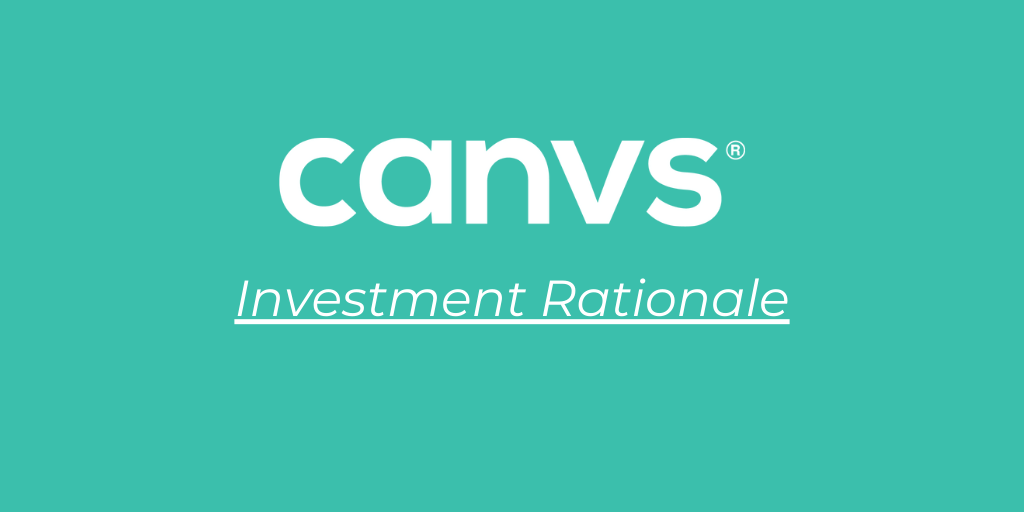Understanding one’s customer has never been more important. It is an imperative function in building a successful brand. This can be done several ways, including customer surveys, social media “listening”, or analyzing reviews. For many industries, such as media & entertainment, consumer packaged goods (CPG), hospitality, travel and financial services, customer emotion has been difficult to accurately attain, especially from open-ended text. York IE’s new investment, Canvs, spent five years building and training an AI algorithm to change that. Canvs uses patented AI and machine learning to measure sentiment from unlimited amounts of open-ended text. Initially developed to monitor social media posts and conversations to help media & entertainment companies understand the emotional response of their audience to their content, the company has now expanded to focus on surveys and paid marketing campaigns analysis. York IE believes this evolution positions Canvs to capture a meaningful share of the $100 billion annual market research spend as they move from product to platform.
Canvs’ patented AI and machine learning software enables the measure of sentiment from unlimited amounts of open-ended text. Their algorithms were built from five years of training on billions of data points and can recognize more than 1 trillion expressions. It also possesses the world’s largest emotional ontology, with more than one trillion words, and can decipher billions of permutations of slang, emojis, misspellings, and acronyms. These factors combined help provide customers with topical analysis and emotion measurement from their customers, resulting in improved product and brand experiences.
Originally, Canvs utilized their software to analyze social media for media & entertainment clients, helping them decipher what viewers thought of their content. Many of the large players in this industry are customers of Canvs, including Comcast, Fox, Turner and Netflix. Over four years the company quantified the emotional response in over 10 billion consumer social media conversations, establishing Canvs as the standard for emotion measurement in media. Analyzing these conversations also further improved the AI and machine learning at the core of the platform
When engaging with their customers, the team at Canvs learned that they spent approximately ten times as much capital on surveys as they did on social media evaluation to better understand their customers. In response to this insight, Canvs developed a new flagship product built on their platform focused on measuring and understanding consumer behavior through the automated processing of open-end responses in quantitative surveys. The platform allows researchers to upload an excel spreadsheet or word document (or leverage APIs for integration) with survey responses and achieve near real time results. Using the platform researchers will be able to ask better questions, extract meaningful signals, and tell stories that transform insights into action.
While asking customers questions in surveys was, and is, the primary way brands are trying to understand their customers, and innovation was occurring on the survey deployment side of the equation (Qualtrics, SurveyMonkey, etc.), there was minimal advancement in how these brands were evaluating responses. Researchers in every industry were still ‘hand-coding’ survey responses the same way they did in 1960. This human hand coding process was time and resource intensive, and brought human bias into the analysis. To reduce this time and resource burden, Canvs made sure their platform automates the entire process. Now companies will be able to understand the consumer sentiment in survey responses in a scalable, cost-efficient manner, alongside social media, marketing campaigns and online reviews.
Every year, the world’s leading companies spend more than $80B on research using quantitative surveys to discover the thoughts and feelings of consumers and employees. The three main verticals in this research are recruitment & employee engagement ($34B), market research ($40b), and customer experience ($5B). The most recent reports expected the customer experience segment to grow to $12B by 2020. When utilizing a bottoms up methodology to determine market opportunity, the company identified a $2.1 billion serviceable addressable market (SAM). This methodology took into account the number of potential direct customers, defined as large businesses with more than 500 employees and over $100M in annual revenue, along with large research firms (ex. Nielsen) and platform providers (ex. Qualtrics) that could serve as partners and indirect customers, and multiplying them by the Canvs’ assumed average selling price (ASP) to each demographic.
York IE sees the competition to Canvs falling into two main buckets. First, are the manual processes previously mentioned. Using tools like Microsoft Excel and Ascribe companies hand code responses bringing in the deficiencies described above. The second bucket are companies providing natural language processing (NLP) and analysis software such as Lexalytics and Clarabridge. These providers do not match Canvs’ depth of product in AI and machine learning resulting in inferior accuracy. They are also less automated.
A central tenet of York IE’s diligence process revolves around the evaluation of a startup’s leadership team. In our opinion, investing in teams with product and industry expertise is a good way to hedge against the risk inherent in investing in early stage startups. The Canvs team is a strong representation of this, as they are pioneers in customer sentiment and open-ended text analysis. Led by Founder & CEO, Jared Feldman, a former Forbes 30 under 30 honoree, the Canvs leadership team is composed of experienced entrepreneurs and business leaders. Along with his inclusion in the Forbes 30 under 30 list, Jared was also voted onto ARF’s Great Minds and A List. Prior to founding Canvs, Jared was the co-founder of Grand Staff L.L.C, a grammy-nominated music production company. On the product side of the business, Sam Hui, PhD, serves as the Chief Scientist, George Kontos assumes the role of CTO, and Erinn Taylor was recently brought on as EVP of Product and Platform. Sam is a tenured professor at the University of Houston and possesses a BS in Math & Computer Science, an MS Statistics, and a PhD in Marketing. George is a 4x entrepreneur and the former CTO of General Sentiment. Erinn has been a leader of product teams at multiple survey technology companies. He was most recently the SVP, Product Development at Dynata, and prior to that was the Chief Product Officer at Critical Mix, VP, Technical Sales at FocusVision, and spent almost 8 years at Decipher rising to VP, Software Support.


